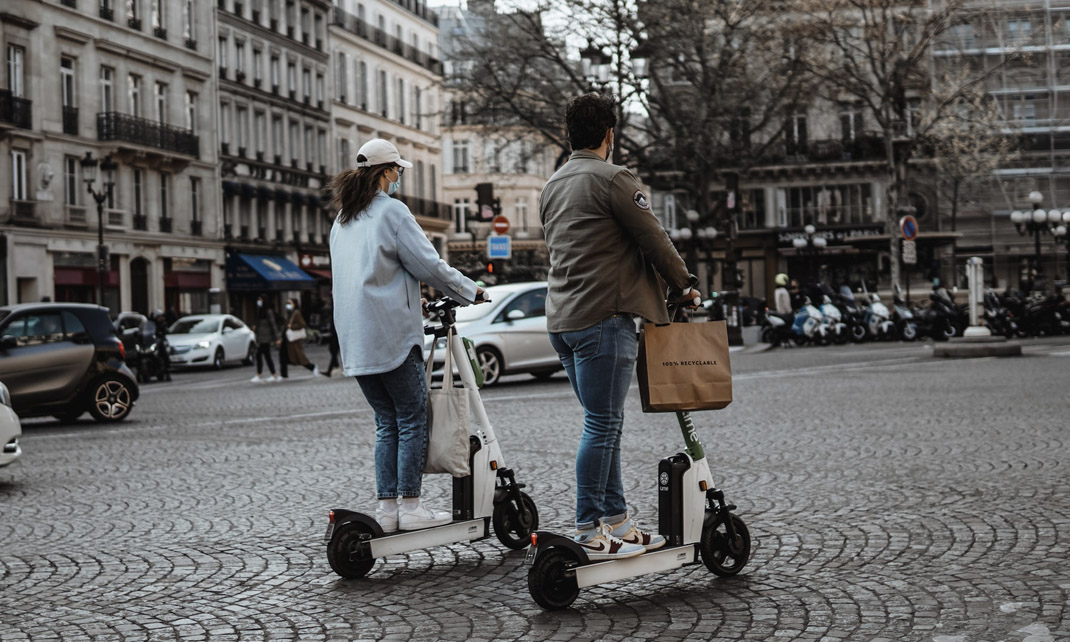Two steps forward, one step back. That adage is perhaps the best way to sum up this last year. Governments lifted lockdown restrictions and deployed vaccines, but people emerged from their homes to a brave new world without a map to navigate it. And still, the coronavirus threads almost all facets of business and life – so much so that our 2020 conversation with the epidemiologist who beat artificial intelligence to spot COVID-19 was one of our most popular reads nearly two years later.
But we’re all craving to know what’s next. That sentiment comes through in our most-read pieces of the year.
Claiming the top spot this year was our piece on the cities with leading sustainable mobility networks. It befits the farsighted view of many that the pandemic was the warmup lap for humanity, but climate change is the marathon race. Our piece details how Scandinavian cities like Oslo, Helsinki, and Stockholm lead the world in clean mobility, thanks to heavily investing in electric vehicle charging stations and infrastructure for cycling. The urban emphasis on micromobility options was also a prediction we made at the dawn of 2021 in our forecast for the industry.
We published the story, and the accompanying Urban Mobility Readiness Index, on November 2, 2021. It coincided with COP26, the United Nation’s climate change summit, expected to be a landmark event for the world’s governments and businesses in committing to go carbon-neutral. Results were mixed: Twenty-eight national governments pledged to sell only zero-emission vehicles by 2040, 11 automakers pledged that 100% of new car sales would be zero-emission vehicles by 2035, and two financial institutions pledged to make capital available for the building of charging infrastructure. It’s a start, but nations with large automotive industries – like the United States, China, Germany, and Japan – were absent from that pledge.
The Oliver Wyman Forum is playing its part in fighting climate change by launching the Climate Action Navigator in the run up to COP26. It’s an interactive roadmap that offers tailored solutions to governments and businesses for lowering their carbon emissions by 2030. Accompanying the Navigator is the Climate Action Library – a digest of each decarbonization solution, offering key context like challenges and real-world examples of an action in progress.
Climate change was a shared theme in half of our top pieces this year – particularly in how the onus is on businesses to play a larger role in fighting it. In April, we published results from our survey in which more than four in five people say it’s important or very important for corporations to commit to reducing their carbon emissions. One strategy is to put the most likely change-makers for climate in leadership positions – namely, women. Our report on the Climate Action Gender Gap details how more women in leadership, investor, and product influencer roles can help businesses accomplish both diversity and emissions goals.
Businesses that are proactive on social issues can also reverse course on the Great Resignation. In September, we spoke with management guru Karl Moore, who stresses that Gen Z and Millennials are looking to work for companies who put their money where their mouth is in acting as a force for good on climate and diversity. And in reviving employee loyalty, providing more balance, flexibility, and career development won’t hurt, either. Our October newsletter edition, which emphasized how those strategies could improve employee retention and recruitment, was our third most-read piece.
What’s in a name? While the Holistic Market Model doesn’t evoke utopian imagery of high-tech electric vehicles and bountiful cycling paths, it enthralled our readers. It’s our radical new model for understanding the stock market’s past and future. Understanding the market used to just be about the return an investor can expect weighted against the risk taken, but our Holistic Market Model addresses much more – from accounting principles to psychology – to explain more thoroughly than ever the US equity market’s behavior over the past century and a half.
But for all our understanding of the markets, a devastating data leak could sink an investor’s outlook, and protecting data was among the most compelling topics for our readers. Our April conversation with Alex Pentland, co-creator of the MIT Media Lab, detailed the need for a local and distributed data economy to shield us from invasive actors. We also spoke with Greg Rattray and Jim Cummings, co-founders of cybersecurity advisory firm Next Peak, who explained how companies can protect their digital supply chains from cyberattack.
In the face of so many daunting challenges, we all need something to keep us grounded, connected, and hopeful. The power of storytelling touched our readers on that front. Our August newsletter on the topic featured reading recommendations from the Forum community, and highlighted Yiyun Li, an author and Princeton University creative writing fellow, who led a virtual read of “War and Peace” among 3,000 people across the globe in the midst of lockdown restrictions.
“I could hear everyone saying, ‘what are we going to do, how are we going to live,’” she recalls. “And I just thought, well, maybe you can just read 'War and Peace.' That doesn't solve anyone's problem, but sometimes you just need one thing in your life to hold onto, even just for that 30 minutes of concentration.”

